1. Is Artificial Grass Safe for the Environment?Many people are attracted to the low-maintenance profile of artificial grass, but they’re concerned about the environmental impact.
Truth be told, fake grass used to be manufactured with damaging chemicals such as lead.
These days, however, nearly all grass companies make products that are 100% lead-free, and they test for harmful chemicals like PFAS.
Manufacturers are also getting more creative with ways to makeartificial grass as “green” as the real stuff, using renewable materials such as soybeans and sugar cane fibers, as well as recycled ocean plastics.
Additionally, there are numerous environmental benefits of artificial grass.
Fake grass drastically reduces the need for water.
It doesn’t require chemicals, fertilizers, or pesticides either, preventing these harmful chemicals from disrupting the ecosystem through lawn runoff.
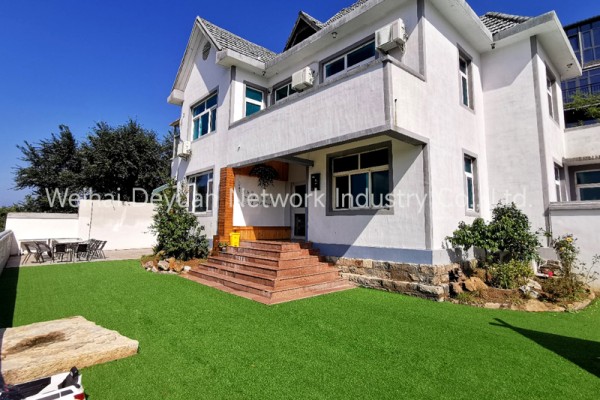
2. Does Artificial Grass Need Water?This one may seem like a no-brainer, but the answer may surprise you.
Obviously, your artificial grass does not need water to grow.
That said, there are a few cases in which you may need or want to “water” your artificial lawn.
Rinse it off to remove dust and debris. Texas dust storms and autumn leaves can muck up your gorgeous, green lawn, but a quick spray-down every two weeks or so can solve those artificial grass problems easily.Hose down areas pets use. After removing any solid pet waste, it’s beneficial to spray the areas pets use for doing their business to remove any residual liquid waste, as well as the odor and bacteria that accompany it.Spray hot, sunny areas to cool off artificial grass. In direct summer sun, fake grass can become a bit hot for bare feet or paws. A quick soak with the hose before you let children or pets play can cool things off.
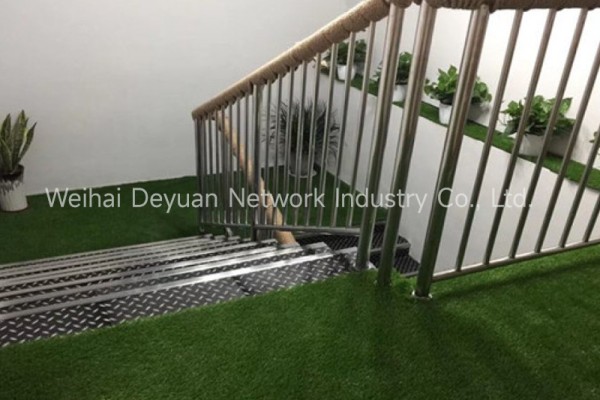
3. Can I Use Artificial Grass Around Swimming Pools?Yes!
Artificial grass works so well around swimming pools that it’s very common in both residential & commercial artificial turf applications.
Many homeowners enjoy the traction and aesthetic provided by artificial grass around swimming pools.
It provides a green, realistic-looking, and slip-resistant pool area ground cover that won’t be damaged by heavy foot traffic or pool chemicals.
If you opt for fake grass around your pool, be sure to choose a variety with a fully permeable backing to allow splashed water to drain properly.
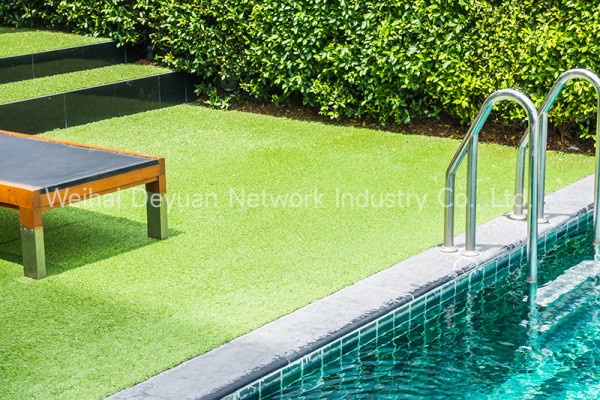
4. Can you Install Fake Grass on Concrete?Definitely.
Fake grass is extremely versatile, and it can even be installed on hard surfaces like a deck or patio.
Installing synthetic grass on concrete is actually easier than installing it on dirt or soil, as the even surface eliminates a lot of the labor-intensive prep work that’s necessary for smoothing out the ground.
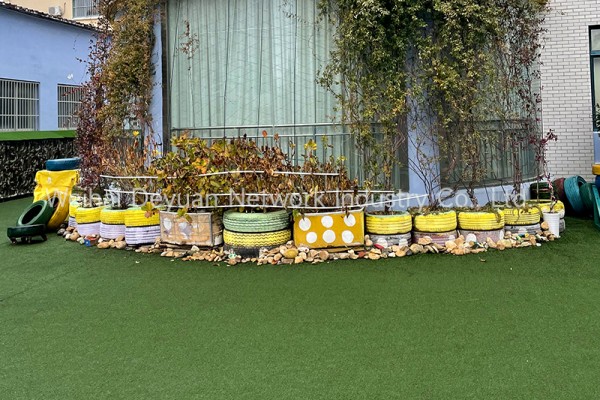
5. Is Artificial Grass Dog-Friendly?Artificial grass for dogs and pets has become increasingly popular in recent years.
In fact, it’s the most popular turf application for residential properties that we install.
Dogs especially are murder on lawns, creating well-worn ruts and brown urine spots that are tough to get rid of.
Artificial grass is perfect for building a dog run or creating a dog-friendly backyard that’s going to last for a long time.
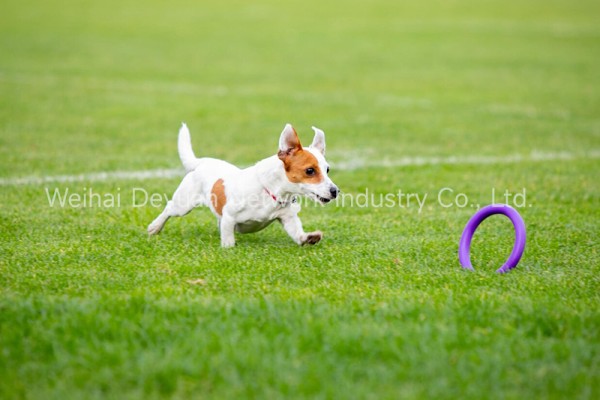
6. Will My Dog Damage Artificial Grass?The popularity of fake grass for dogs is due in large part to how easy it is to maintain and how durable it is.
As long as you choose a quality product designed with pets in mind, artificial grass stands up to heavy foot/paw traffic, prevents dogs from digging, and won’t end up covered with brown dog urine spots.
The durability, low maintenance, and high ROI of manufactured grass is evident in its popularity amongst dog parks, veterinarians, and pet-care facilities.
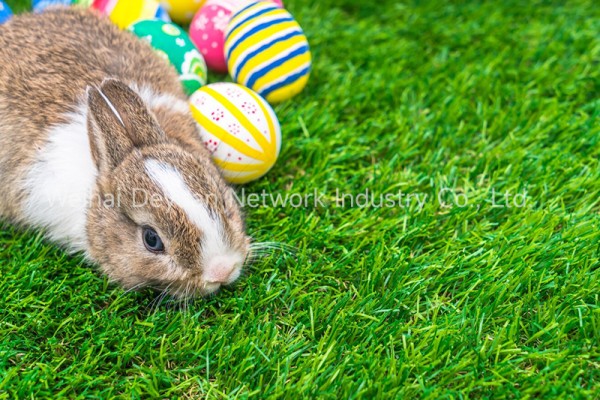
7. How Do I Remove Pet Odor/Urine Smell from Artificial Grass?Dogs tend to pee in the same areas over and over, leading to a build-up of urine in the backing of the artificial turf.
This accumulation of urine is a prime breeding ground for odor-causing bacteria.
The build-up is exacerbated by things like dog hair, leaves, dust, and other debris, as these prevent the turf from draining properly and give the bacteria more surfaces to cling to.
To prevent pet odor on your artificial grass, clear the debris with a rake or a hose regularly.
Remove solid waste from your yard promptly, and thoroughly spray down any “pet potty” areas with a hose at least once a week.
If the urine smell continues, you can buy a pet odor removal product that is specifically designed for artificial grass, or you can just sprinkle the offending areas with baking soda and rinse with vinegar and water.
If you know your pets will be using your artificial grass to do their business, look for turf products.
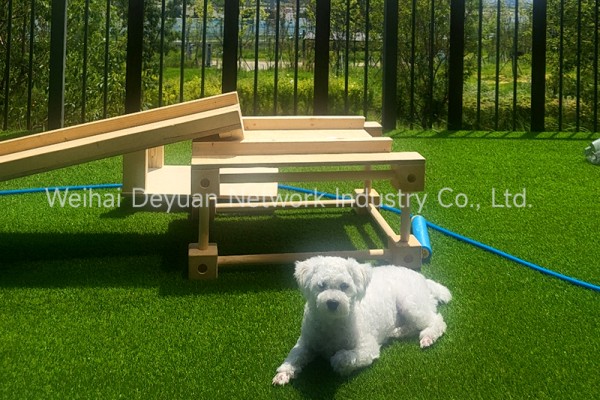
Media Contact
Company Name: Weihai Deyuan Network Industry Co., Ltd.
Email: Send Email
Phone: 0086-18063110576
Address:No.169-1 Torch Road, Torch High-tech Industrial Development Zone
City: Weihai City
State: Shandong Province, 264200
Country: China
Website: https://www.dygrass.com/
